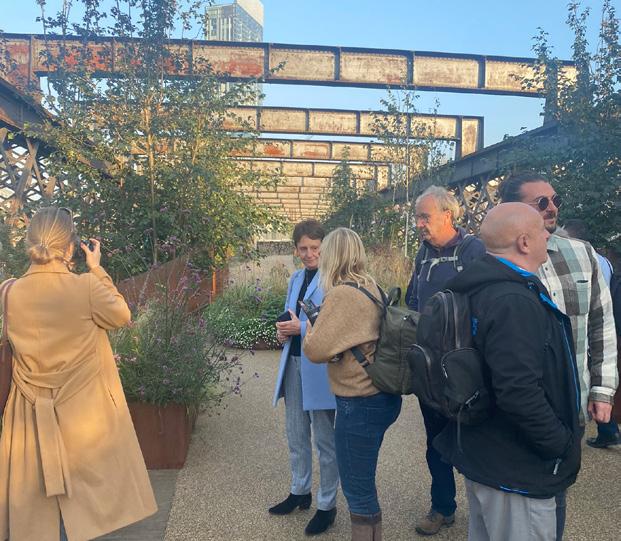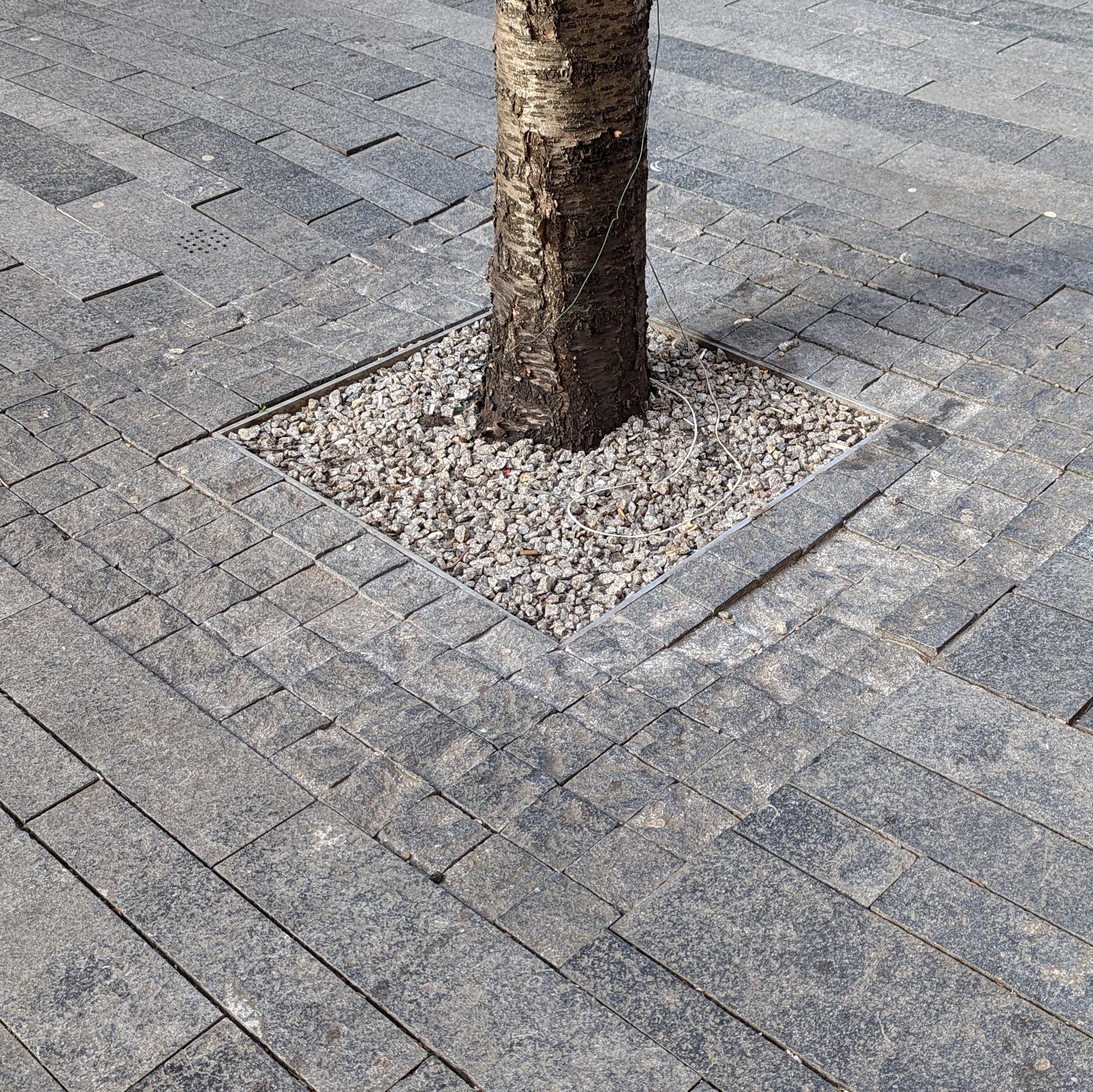
5 minute read
Ecocity World Summit and the London Festival of Architecture come together in June
Resilient landscape on the Barbican High Walkway designed by Nigel Dunnett © Nigel Dunnett
The Ecocity World Summit comes to London’s Barbican Centre in June 2023. Taking place at the same time as the annual London Festival of Architecture, the three-day event will invite participants to formulate and implement plans for the future of cities.
The London Festival of Architecture regularly features a range of landscape projects. Each year, the Festival chooses an overarching theme. For 2023 the Festival Theme is “In Common”.
The organisers say: ‘We have more in common than we know. But how do we create and shape the space we share: our city? How do we make the most of what we have in common – and explore the things we don’t? When it comes to physical and digital space, we have our own spaces, but we also have space in common.
Can thinking about what we share help us to develop more responsive and inclusive forms of practice, ones built on principles of collaboration, equity, and sustainable design and ongoing management? There are always questions around how accessible, free and safe the spaces around us are. The 2023 theme of ‘In Common’ allows us to rethink how we create, reclaim, maintain and govern our city to create a city which is truly open, accessible and safe to all, by looking specifically at what connects us and what doesn’t.’
This year the Festival is joined by the Ecocity World Summit.
The Summit takes place from 6th–8th June at the beginning of the month-long London Festival of Architecture. The Director of the Summit is Gonzalo Herrero Delicado, a curator, educator and architect based in London.
Gonzalo is also a Design Fellow at the University of Cambridge and an Associate Lecturer at Central Saint Martins, University of the Arts, London. From 2016 to 2021, he was Curator of the Architecture Programme at the Royal Academy of Arts in London, where he organised EcoVisionaries (2019-2020) and Invisible Landscapes (2018-2019), among many other exhibitions, displays and public programmes. Previously, he has been a curator at the Design Museum and The Architecture Foundation.
The festival aims to bring together thinkers, innovators, and urban stakeholders from across the globe to discuss the future of cities at a time of climate emergency, and define the next steps towards building more ecological cities.

Gonzalo Herrero Delicado
© LFA
First held in 1990, the Ecocity World Summit is the first and longestrunning global conference on ecology and cities. Every two years, it brings together urban stakeholders from across the globe to focus on key actions cities and citizens can take to rebuild the human habitat in balance with living systems.
Ecocity World Summit was set up by Ecocity Builders, which was founded in 1992 by a core group of ecologists and activists to further a set of goals outlined at the first International Ecocity Conference in Berkeley in 1990. Making use of ecological urban planning, design, ecology, education, advocacy, policy and public participation to build healthier cities for both people and nature, Ecocity Builders started with local projects in the San Francisco East Bay. These included the Codornices Creek Project in 1994, that removed the water channel from its cement culvert along the Albany/ Oakland border to create a mile-long park. Another example is a series of ‘depaving’ projects in Berkeley. Other projects included shared space and traffic calming features In the mid2000s, Ecocity Builders first began employing GIS mapping techniques to identify active urban areas that could serve as Eco Districts. Ecocity Builders believe that the form of the city matters, and that it is crucial to reshape and restructure cities to address global environmental challenges.
The chosen theme for the London summit is Connecting Communities. This will look at how collaboration, participation, democratisation of design and transdisciplinary approaches can create better cities and communities. This will be explored through four areas:
– Biodiversity: how can we best focus on locally and globally restoring and sustaining ecological integrity through species, ecosystem and genetic diversity?
– Regenerative design: how can we design, build, and operate our buildings and urban places to have a net-positive impact on our environment?
– New lifestyles: how can culture, new technology, urban design, and governance enable sustainable behaviours, and a happy, healthy, and equitable future?
– Healthy ecosystems: how can we find ways to manage our natural and material resources to sustain healthy and restorative systems?
The organisers plan to create a network of urban stakeholders supporting sustainable futures; disseminate learning between cities and city markers; provide a forum to challenge existing urban systems, policies, and priorities; inspire and support professionals and citizens to take action to meet key targets; and leave a legacy in London through a series of partner pilots and a learning programme.
Ecocity takes place from 6th–8th June at the beginning of the monthlong London Festival of Architecture, a celebration of architecture and city-making.
Paul Lincoln is editor of Landscape










